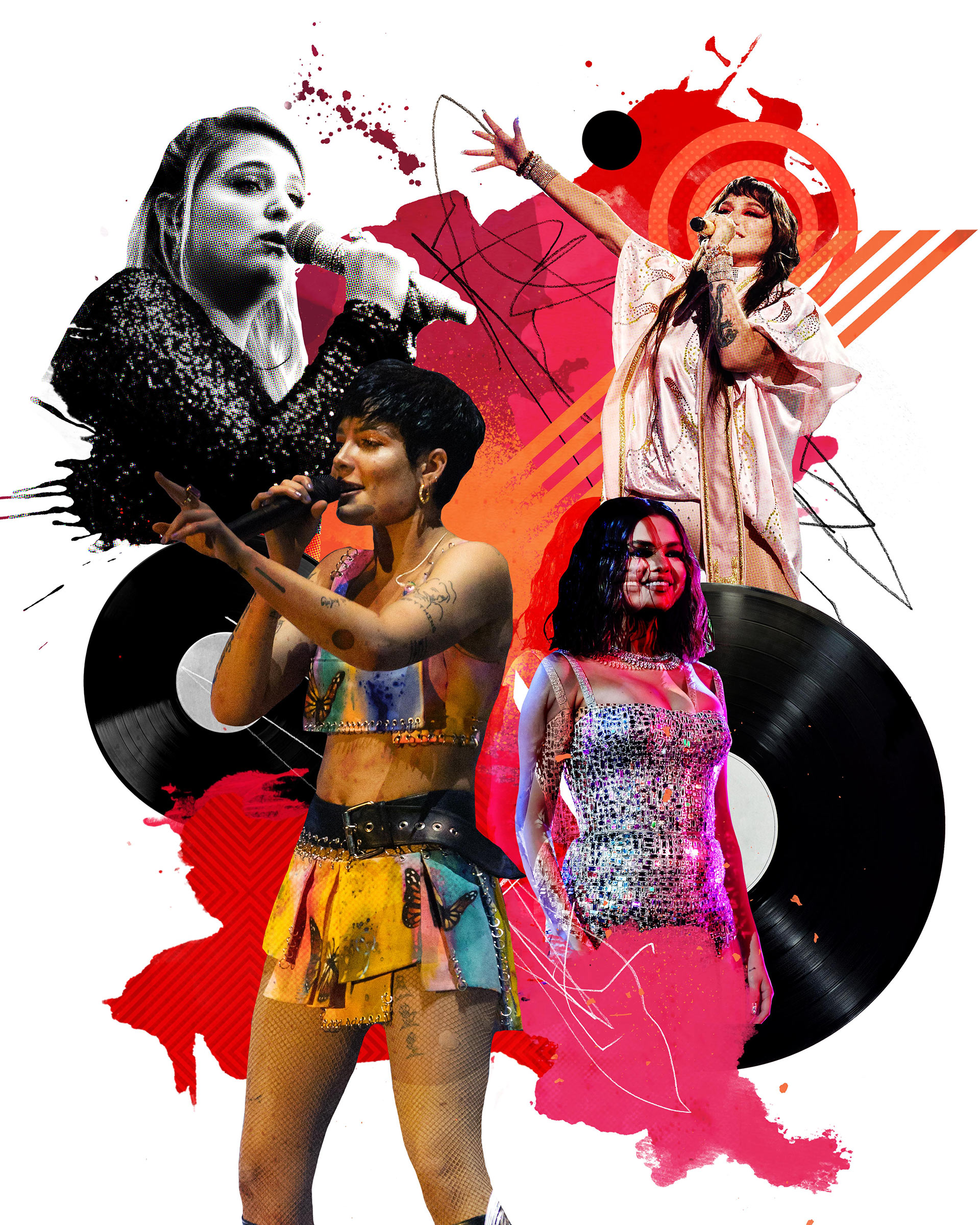
While 2019 may not have been an explosive year in pop music, it teed up the personalities and story lines that could define the next decade in listening. A new generational gap opened up, one separating the veteran stars of the ’10s–think Beyoncé, Drake, Rihanna and Taylor Swift–from a new crop of ascendant artists like Billie Eilish, Lizzo and Post Malone. A quiet year for the former group included live albums, B-side compilations and a focus on nonmusical pursuits. Among the few to release a collection of new work was Swift, whose Lover sought to recapture the polished, joyous sound of older albums like Red and 1989.
The pause left space for Eilish and her colleagues to storm the charts with work that shared a key set of qualities: agility, musical fluidity, a natural ease with the Internet, and comfort with the language of self-care and existential dread. (They’re natural bedfellows: you have to labor to maintain your well-being when it feels like the world is going up in flames around you.) And while it’s not as if those big names are going to be knocked from their pedestals anytime soon–for some of them, music is just one part of a multi-faceted global lifestyle brand–it’s apparent that the rules are beginning to change. Anyone striving for pop success in 2020 and beyond will be judged on criteria laid out by the young guns.
Some artists are struggling to adjust, even after making a conscious effort to revise their approach. Meghan Trainor felt old-fashioned at her commercial peak, thanks to the doo-wop lean and retro romanticism of hits like “All About That Bass” and “Dear Future Husband.” As the years between albums piled up–her last full-length release before this year was Thank You in 2016–what was once “old-fashioned” began to feel antiquated.
When faced with the prospect of revitalizing her new album, Treat Myself, Trainor had to start from scratch: “I wrote four albums [of material] because I was adapting to what’s going on in the music industry,” she told Billboard. “I got into such a dark place of, ‘I don’t know how to follow all these rules.'” It’s a quote that’s refreshingly frank and appealingly workmanlike. You get the sense that Trainor views pop music as her vocation, and she wants to do her job well. But the singles from Treat Myself wear that hard work on their sleeve; taken together, they give the impression of an artist grasping at straws, with the light funk of “Blink” and “Evil Twin” ill-fitting alongside the moody folk of “Workin’ on It.”
Others are reentering the pop landscape only to discover how much it’s changed. When Kesha made her comeback with the somber Rainbow in 2017, it was devoid of the glitter-streaked, whiskey-soaked hedonism that had characterized her earlier work–a natural reaction to the trauma of her long-running legal entanglement with producer Dr. Luke, whom she’d accused of sexual and emotional abuse. Her new album, High Road, represents a return to her “roots of pure and utter debaucherous joy,” as she put it.
Kesha has always been comfortable with the language of empowerment, and the wisdom of songs like “Raising Hell”–a celebration of the healthy bit of sin in every good person–feels hard-won given the pain she’s faced in the most public possible forum. And yet the songs that have been released from High Road are out of step with pop’s prevailing mood. They feel like your aunt has just shown up at the bar and bought your friends a round of tequila shots: her heart’s in the right place, but it’s still a little embarrassing. The best High Road single is “Resentment,” an aching collaboration with the country singer Sturgill Simpson, which captures how her strengths have evolved.
If Trainor and Kesha are artists trying to keep up with pop’s changing tides, then Halsey is a good example of someone riding the waves with ease. Her new album, Manic, is stylistically varied enough to accommodate guests from altrock icon Alanis Morissette to BTS firebrand Suga. The title acknowledges her bipolar disorder; she wrote the album in a manic phase and has discussed her mental health candidly in interviews.
A core of rich, raw emotion is what holds Halsey’s work together when it threatens to come unglued, and it’s what propelled Manic single “Without Me”–an acid reflection on an unfaithful ex-boyfriend–to the No. 1 spot on the singles charts last year. Whether you’re relating to her or feeling mortified by her, it’s impossible to look away. That intensity unifies Manic as she flies from theater-kid balladry (“clementine”) and country-flecked breakup anthems (“You should be sad”) to the dewy electropop of “More.”
There are also a select few artists who can combine the powerful celebrity of the old guard with the dynamism of last year’s graduating class. Selena Gomez has been at this long enough to accrue more than 166 million followers on Instagram, but her comeback album, Rare, doesn’t feel like an event. Instead, it’s airy and surprisingly unassuming. Released in the wake of personal turmoil and a battle with lupus that necessitated a kidney transplant, its approach to self-care and the language of recovery is conversational and refreshing. Minimal arrangements, inflected with notes from R&B and Latin music, accentuate Gomez’s thin voice and turn a weakness into a strength. Whether any of her contemporaries will follow her lead remains to be seen, but Gomez proves there’s still a way to be a pop star in this moment of change.
More Must-Reads from TIME
- How Donald Trump Won
- The Best Inventions of 2024
- Why Sleep Is the Key to Living Longer
- Robert Zemeckis Just Wants to Move You
- How to Break 8 Toxic Communication Habits
- Nicola Coughlan Bet on Herself—And Won
- Why Vinegar Is So Good for You
- Meet TIME's Newest Class of Next Generation Leaders
Contact us at letters@time.com